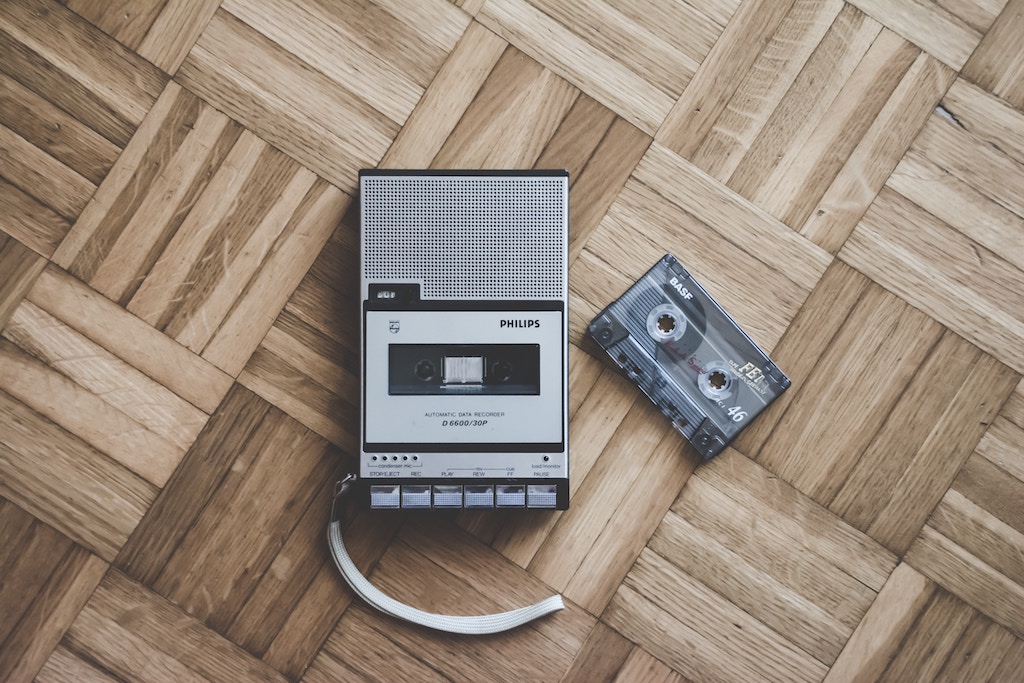Week 25 - What I Need to Know About Music's Affect on the Brain

Like facial reactions, music seems to be one of those universal languages shared across every culture. It uses every part of the brain, whether listening or playing and provides numerous benefits. It even has its own fancy science name, biomusicology.
We've probably all heard that myth about playing Mozart to babies in the womb, or just while they're growing up to make them smarter, but does that myth have any footing? Why do we say that music makes people smarter?
While this might not be fair, let's start with people who are exposed to the most amount of music. And no, I'm not talking about the headbanging kind.
Professional musicians, or really just most artists in general, are training their brains to be more:
-
Sensitive
-
Connected
-
Symmetrical
On top of that, these brains tend to have better memory, auditory and cognitive skills, and a larger corpus callosum (the area that connects and transfers information between the two halves of your brain). You'll find dozens of studies on how listening to music and/or teaching yourself an instrument provides tons of benefit for a growing (or even aging) brain.
We can also now back up the idea of listening to sad music when we're sad or using happy music to improve our mood. Sure, everyone knew this/already does it, but now science has told us why.
Music not only reduces stress levels, but it can also make you feel empowered and hopeful. Or, on the flip side, it can help you manage/understand your emotions in some sadder times. But what is your brain doing when it's getting receiving these lovely sounding frequencies?
Well, just pretend you're doping. And when I say pretend, I mean you're actually doping.
When you listen to various types of music, your brain is releasing dopamine, a classic reward drug naturally produced by your brain (the same one produced after sex or a hit of that white line). If you want an even stronger hit, listen to music on shuffle. When a song you love comes up unexpectedly, you'll get a small boost of dopamine.
But music isn't just sending dopamine everywhere (I don't even think that what I just said made sense biologically, but this isn't a science journal so who cares). It's also creating another hormone called Oxytocin, which shows up in trust and relationship building experiences. Or childbirth...lots of Oxytocin there.
Listening or even playing music at a young age has numerous benefits. And the best part is that it can all be started before they (the babies) even know what's going on. Exposure to music can help children grow up with enhanced levels of:
-
Reading
-
Writing
-
Math
-
Language
-
Blood flow
-
Satisfaction
-
Communication
These children don't necessarily need to become the next Bach or Mozart, but they can experience all the benefits of playing music just by doing it for a few years.
What most people might not think about is how music can actually help children excel in math and science. Most of the time, we associate music and the arts with one side of the brain (the right), and math and science with the other side (the left). This is due to the effect that music has on affecting (i.e., improving) children's understanding of spatial intelligence, a very necessary tool in areas like math, physics, and architecture.
In the end, music can be a powerful motivator, healer, and educational aid to everyone. Need help studying? Music can help. Want to improve your mood? Music can help. Want to keep your mind sharp, or even return it to a semblance or normativity? Music can help.
Whatever issue, ailment, or obstacle you encounter in your life, music can probably help you overcome it. It's a lot more powerful than people think.
I thought it was pretty funny that while I was reading this article, I was listening to music and was tapping my fingers, right when I read the "Your toes and fingers start to tap" part. Whether we like it or not, music affects our thoughts and actions. Sometimes it's pretty purposeful, like ballroom dancing, other times it's that extremely annoying whistling that your co-worker starts to do (subconsciously) when their favorite song comes on.
The brain is a complex structure, requiring years of study to even get a semblance of understanding its inner workings. So if that interests you, take a look at cognitive science and learn some pretty cool stuff. It's also a great field that crosses disciplinary lines, so you get to hop around - great for those who want a broad scope of knowledge.
A common complex function of the brain is releasing hormones that give you feelings of pleasure. This rewarding hormone is called dopamine and is released when you have sex, take drugs, or listen to your favorite song/symphony.
Or, if you want to take to look at it from a more practical angle, music has been shown to increase your bodies ability to fight sickness. On top of all this though, it's believed that music leads to an increase in grey matter in the brain. For those who don't know, your brain is composed of grey and white matter. This increased volume of grey matter leads to increased brain functions like:
-
Learning
-
Memory
-
Listening
In some instances too, it matters what kind of music you listen to. I know personally, I can't listen to pop music when I'm trying to study for an exam. In these instances, I would actually listen to my Braveheart station on Pandora.
Depending on your goal, you'll usually want to listen to a different kind of music. Orchestral and acoustic music can be good for reading, writing, and studying. On the other hand, pop or upbeat music can be a great asset before a big game, interview, or just as a way to give yourself a boost.
Scientists at McGill University spent some time researching the connection between music and that tingly feeling you get when your favorite song comes on. The experiment for this was simple: do a double-blind study where subjects are given Naltrexone, a drug that essentially prevents you from feeling pleasure (like from your favorite song). Subjects were asked to listen to music before and after taking either Naltrexone or a placebo so scientists could generate objective and subjective pleasure readings.
They found that the subjects who had taken the Naltrexone experienced reduced moments of pleasure when listening to their favorite music. This reduction of pleasure due to Naltrexone allowed scientists to make a definitive connection between music and the brain's production of opioids.
Since music can be used to heal people both physically and mentally, it's usually ranked as one of the most common ways to bring pleasure and happiness to people, even above food, money, and art. Now we know why.
Too Long; Didn't Read
Like sex, drugs, and food, music has the ability to release dopamine from our brains and let us experience pleasure. It boosts our mood, can reduce symptoms of alzheimer's, and just makes us more intelligent (assuming you play an instrument).
Music quickly influences how we perceive situations, both psychologically and physically, and is a language that is shared around the world. Each person will have their own mix and will experience different levels of pleasure. But in the end, it's there for our benefit.
It's there to help us appreciate the beauty of the world, to learn and expand our depth of our knowledge, to bring healing in times of sadness, and amplify the moments of joy.
